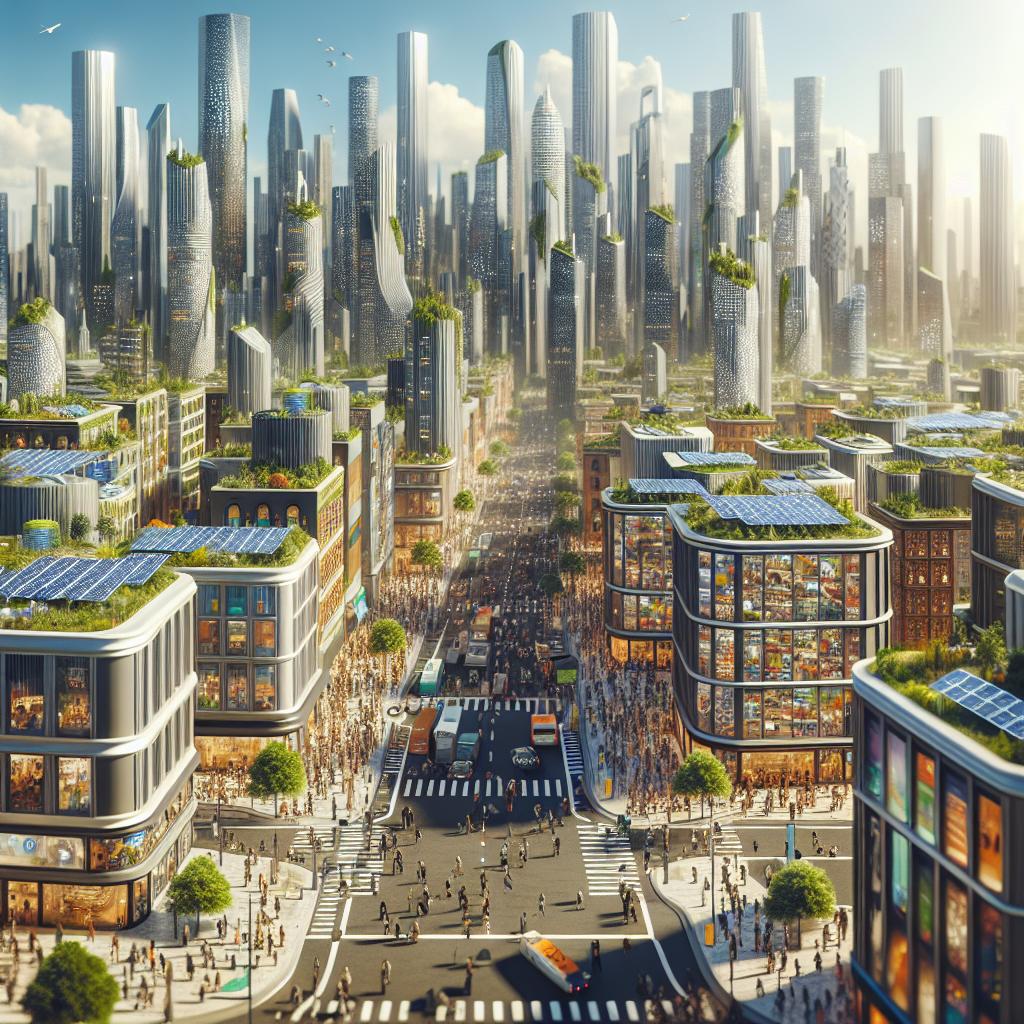Building a Sustainable Future

In the face of the unprecedented climate crisis, it is more important than ever for individuals, businesses, and governments to take bold steps towards creating a sustainable future. This future is not just about reducing carbon emissions and preserving the environment, but also about ensuring climate justice for all. In this article, we will explore how renewable energy, green buildings, and zero waste are essential components of this sustainable future.
First, let's talk about renewable energy. Renewable energy is the key to reducing our reliance on fossil fuels and mitigating the worst effects of climate change. According to the International Energy Agency, renewable energy sources accounted for more than 30% of global electricity generation in 2020. This is a significant increase from just a few years ago and is a clear indication of the growing trend towards renewable energy.
Solar, wind, hydro, and other renewable energy sources are becoming increasingly affordable and accessible. For instance, the cost of solar panels has dropped by more than 80% over the past decade, making it an attractive option for both residential and commercial consumers. Moreover, advances in energy storage technology are making it easier to store renewable energy for use during peak demand periods, further increasing the viability of renewable energy.
But renewable energy is not just good for the environment; it is also good for business. Companies that invest in renewable energy are not only reducing their carbon footprint but are also benefiting from cost savings, increased energy independence, and improved brand reputation. In fact, a report by the World Wildlife Fund found that 100% renewable energy is cost-competitive with fossil fuels in more than 120 countries.
Next, let's talk about green buildings. Green buildings are designed and constructed to minimize their impact on the environment. They use energy-efficient building materials, renewable energy sources, and water-saving technologies to reduce their carbon footprint and create a healthier indoor environment. Green buildings not only help reduce greenhouse gas emissions but also offer cost savings to building owners and occupants through energy efficiency.
One of the most well-known certifications for green buildings is the Leadership in Energy and Environmental Design (LEED) certification, which is administered by the U.S. Green Building Council. LEED-certified buildings undergo a rigorous certification process that evaluates their design, construction, and operation based on several factors, including energy efficiency, water conservation, indoor air quality, and materials selection.
Finally, let's discuss zero waste. Zero waste is the goal of reducing the amount of waste that is sent to landfills and incinerators. This can be achieved through a combination of reducing waste at the source, reusing items, and recycling. Zero waste is not just about reducing waste; it is also about creating a circular economy where resources are reused and recycled indefinitely.
Zero waste is gaining popularity in both the public and private sectors. For instance, cities such as San Francisco and Seattle have set ambitious zero waste goals, while companies such as Patagonia and Interface have implemented zero waste initiatives in their operations. Zero waste is not only good for the environment but also for business. According to a report by the Ellen MacArthur Foundation, a circular economy could generate $4.5 trillion in economic benefits by 2030.
In conclusion, renewable energy, green buildings, and zero waste are essential components of a sustainable future. They not only help reduce carbon emissions and mitigate the worst effects of climate change but also offer cost savings and other benefits to individuals, businesses, and governments. Climate justice is at the heart of this sustainable future, ensuring that all people have access to clean air, water, and energy, regardless of their income or location. Let us all strive towards building a sustainable future, where renewable energy powers our homes and businesses, green buildings provide a healthier indoor environment, and zero waste is the norm.




